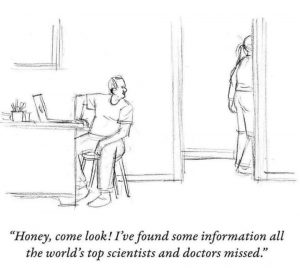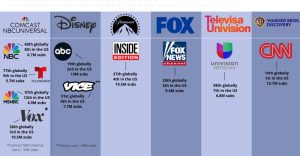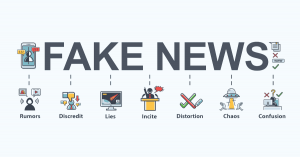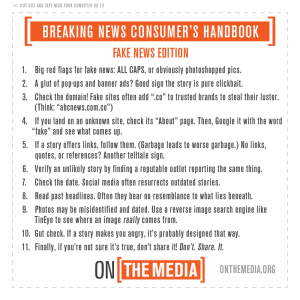Although some might claim that we no longer need journalists, that the internet has given us access to primary sources which we can interpret for  ourselves—“do your own research” anyone—I think we need them now more than ever. Those who declaim journalism as a field are sometimes merely disagreeing with the message, or are responding both to censorship of journalists who refuse to toe the party or state line, or have an older notion of a journalist as a reporter who goes out into the world and collects the stories from an investigation of material and interviews.
ourselves—“do your own research” anyone—I think we need them now more than ever. Those who declaim journalism as a field are sometimes merely disagreeing with the message, or are responding both to censorship of journalists who refuse to toe the party or state line, or have an older notion of a journalist as a reporter who goes out into the world and collects the stories from an investigation of material and interviews.
I think when people picture a journalist they think of someone on the front lines, someone whose accent is different from those they are reporting on, who is theoretically objective about what they are saying. With all the major media companies beholden to either state or corporate funding—with the exception of The Guardian—that type of reporting is not common in our media. For one thing, the corporate news world employs front people who interpret what the reporter has told them, and if they switch to the reporter in the field, the interpretation given is already sanctioned. CNN can scarcely be reporting on corruption within CNN, for instance, any more than Fox News Entertainment reported that they’d been fined for reporting lies and they’d supported their case by saying that no reasonable person would ever read anything they say as anything more than nonsense.
In Canada we have had a similar problem with our national broadcaster. Despite who is in government, CBC’s funding dwindles year after year, and if their reporting is too critical of the government, then their funding is cut still more.[i] Behind the scenes there is “client journalism,” as journalists are fed the party line with an expectation they will present it as a credible source.[ii]
With the corporate and government stranglehold over media it is no wonder that people have become increasingly suspicious of what they are seeing from traditional media services. This was greatly assisted by politicians declaring that any news they didn’t agree with was “fake news” and as claims concerning “alternative facts” came to dominate the story, people turned away more and more.
increasingly suspicious of what they are seeing from traditional media services. This was greatly assisted by politicians declaring that any news they didn’t agree with was “fake news” and as claims concerning “alternative facts” came to dominate the story, people turned away more and more.
Into this partial truth-vacuum comes citizen media, where relative unknowns set up channels on YouTube or other services and purport to deliver reality for a click a time. Some of them are disgraced members of major media platforms like Tucker Carlson, or, increasingly, budding independent journalist hopefuls like Owen Jones, Novara Media, and The Young Turks. Their presentations, with green-screen backgrounds and interpretation of news clips and tweets from other journalists have much in common with the major platforms, and when they stray into editorializing the viewer doesn’t see much difference between them and the average pundit on the corporate channel.
Perhaps this loosening of the press credentials was necessary in an alternative media landscape, but it also proved to be a gateway drug which led to the latest iteration of how many people process media. They believe that they can merely go to the sources themselves. They follow major figures online, examine online evidence for wrongdoing or scandal, and set themselves as the judge in the court of public opinion. A particularly glaring case was that of the 4chan sleuths who decided the investigation into the Boston Marathon bombing was dragging its heels.  They recruited others like themselves and began to pour through the footage of the scene. Alert for anyone who looked foreign or with a backpack, they quickly identified two undercover police officers and they had to be officially called off by the agencies, who pled that the cover of the two officers was now blown.
They recruited others like themselves and began to pour through the footage of the scene. Alert for anyone who looked foreign or with a backpack, they quickly identified two undercover police officers and they had to be officially called off by the agencies, who pled that the cover of the two officers was now blown.
This type of hubris which leads the keyboard warrior to presume that they can winnow through the material surrounding an event better than the experts, and the arrogance which would lead them to make their proclamations online is precisely why we need professional journalists. Even though the system is flawed, and some journalists are biased individually, or their platforms are beholden to corporate or state sponsors, they are still professionals who are well aware that their anti-Pulitzer will follow them if they deliberately invent material. They have the potential to lose their career if found out, and in the days of online sleuths, they will shortly be found out if they claim that a calendar is a schedule of militants or that a video from an event is later found out to possess a different time stamp.
As well, in the welter of media they can sample, many self-styled investigators may not be aware that the platforms are silencing dissent and making sure that some voices are amplified more than others:
Meta’s censorship of content in support of Palestine adds insult to injury at a time of unspeakable atrocities and repression already stifling Palestinians’ expression,” said Deborah Brown, acting associate technology and human rights director at Human Rights Watch. “Social media is an essential platform for people to bear witness and speak out against abuses while Meta’s censorship is furthering the erasure of Palestinians’ suffering. (“Meta: Systemic Censorship of Palestine Content.” Human Rights Watch)
The journalists of today are no longer old-style reporters, going to the site of the event and confirming the truth of the matter. Like the online sleuths they can stay home and comb through most original footage available. They are now the arbiters of fact-checking, examining their sources and applying their critical reasoning to sources they have. Although the online sleuths and their many acolytes think they’re journalists now because they can access direct information, they’re not trained to recognized spin, to know which sources are more reputable, or have a historical relationship to the sources.
the truth of the matter. Like the online sleuths they can stay home and comb through most original footage available. They are now the arbiters of fact-checking, examining their sources and applying their critical reasoning to sources they have. Although the online sleuths and their many acolytes think they’re journalists now because they can access direct information, they’re not trained to recognized spin, to know which sources are more reputable, or have a historical relationship to the sources.
The media landscape has become even more dangerous now because so many people without good media literacy or even critical thinking skills think they can access the truth directly, as though a journalist standing between me and the screen means I won’t be able to see the screen. For every person hollering online that we can just go to Telegram to “see the videos,” there are thousands of tireless journalists who are trying to verify the source of the videos, who trace provenance and background of posters, and who try to get to the essential core  of the information that the hungry world is rapidly devouring raw.
of the information that the hungry world is rapidly devouring raw.
Those people say we can dispense with journalists, but in fact, we need them more than ever.
Works Cited
Barnett, Steven. “Journalists must not allow themselves to be used by unscrupulous politicians” The Conversation. October 25, 2019.
Bell, Warren. “Harper’s long, incremental crusade against the CBC” The National Observer, October 1, 2015.
[i] See Warren Bell’s “Harper’s long, incremental crusade against the CBC” The National Observer, October 1, 2015.
[ii] See Steven Barnett’s “Journalists must not allow themselves to be used by unscrupulous politicians.”
“Meta: Systemic Censorship of Palestine Content.” Human Rights Watch. December 20, 2023. https://www.hrw.org/news/2023/12/20/meta-systemic-censorship-palestine-content

